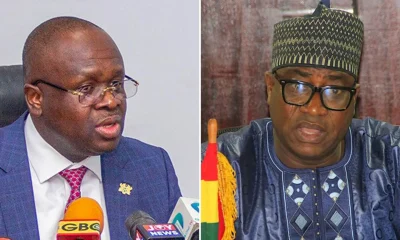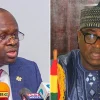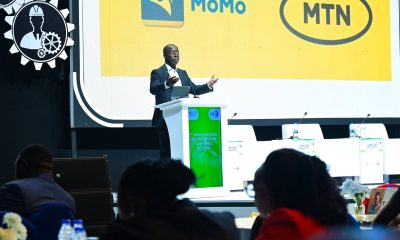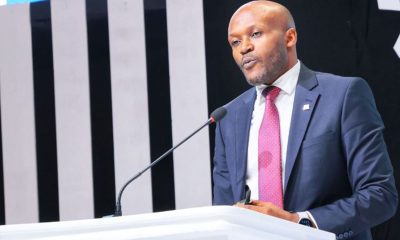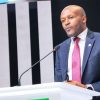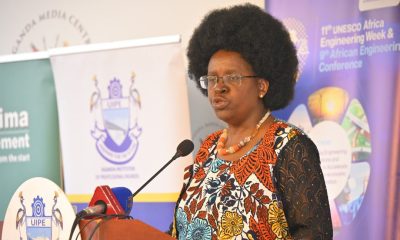Ramathan Ggoobi
Why Uganda is failing?
It’s now less debatable that Museveni has failed, yet it likely that even if replaced him with Besigye or Bukenya or Sejusa, we might a few years down the road end up where we are today, if not even in worst situation. Why? What do we need to do?
Lately, all the goings on in Uganda leave no doubt that the NRM Government is at the verge of collapse. When Gen. David Sejusa wrote the infamous letter that leaked in a local daily, alleging that his life and that of other senior members of government — Prime Minister Amama Mbabazi and Internal Affairs Minister (then CDF for UPDF) Gen. Aronda Nyakairima — were in danger courtesy of the “Muhoozi Project”, whispers started to go around that the country was once again headed for the 1970s and ‘80s times.
Since Sejusa left the country, a number of scary things have happened. A hasty reshuffle both in the army and cabinet generated more questions than answers. Sejusa gave a couple of interviews to BBC and Voice of America where he branded the government he was serving as Coordinator of Intelligence Services “a pack of looters” and vowed to lead in removing it. Local media has also been reporting arrests and detaining without trial of hundreds of former combatants across the country on the suspicion that they could be planning some subversive activities.
Within government itself things are not going on normally. In the last week alone, we have had not one but three events that are uncharacteristic of a well-functioning government. A nasty exchange unfolded in media between Lands State Minister, Ida Nantaba and the Inspector General of Police, Gen. Kale Kayihura. Two days later, the Speaker of Parliament, Rebecca Kadaga blasted PM Mbabazi, who is also the Leader of Government Business in Parliament, right on the floor of Parliament!
Days before, Brig. Kasirye Gwanga had warned not only police but also his boss, CDF Katumba Wamala, not to dare evicting him from his house lest he shots them! Also worth noting is the noticeable absence of government anywhere. Typical of governments that are in freefall, ministers and other senior government officials have disappeared from the scene, except the President and his brother Gen. Salim Saleh.
Mr President, undoubtedly this is not the Uganda that you promised us in 1986 when you took power for the first time. But how and why did we end up here? Why is Uganda failing once again?
Why nations fail
I have just finished reading two new books. One is entitled; “Breakout Nations” written by Ruchir Sharma and the other is “Why Nations Fail” by Daron Acemoglu and James Robinson. Breakout Nations identifies the economic stars of the future and the requirements countries must pursue to join this club.
Forget about China, India, Brazil and Russia (the so-called BRICs). Sharma, one of the world’s largest investors in emerging markets, managing about $25 billion in assets (remember Uganda’s GDP is about $17 billion!), is betting on countries such as South Korea, Czech Republic, Indonesia, Vietnam, Philippines and Sri Lanka as the likely Kiprotichs of the coming decade. Of more interest to us, Sharma also includes East African nations in this league, but conditions our success on sorting out our politics and achieving an economic union.
In Why Nation Fail, the authors suggest that economic development hinges on a single factor: a country’s political institutions. Specifically they argue that development depends on the existence of “inclusive” political institutions — institutions that protect individual rights and property, and encourage entrepreneurship.
They argue that poor countries are those under “extractive” political institutions — those place power in the hands of a few, and are designed to enrich a small elite, and thus inhibit economic progress for everyone else.
What exactly is Uganda’s problem?
Mr. President, the authors of Why Nations Fail link the extractive institutions in our countries today to the historical legacy of colonialism — that it is the colonialists that created the extractive institutions that have persisted up to today. They claim that you leaders gladly inherited these institutions and mastered the art of extraction, exploitation and oppression.
And that it is politics that is making you choose growth-retarding policies and not because you are ignorant of what needs to be done. That you often get it wrong (making choices that create more poverty and political degeneration) not by mistake or ignorance but on purpose — a manifestation of the iron law of oligarchy (extractive, corrupt and repressive regimes).
Most importantly, they posit that rich countries such as the US, the UK, France etc became rich because their citizens overthrew the elites who controlled power and created a society where political rights were much more broadly distributed, where governments were accountable and responsive to citizens and where elected leaders were servants of the people and not the rulers that only participate in elections for the sake of securing the legal right to dominate others.
They also assert that poor countries remain poor because those who mount revolutions simply take over the reins from those they deposed and recreate a similar system. Their theory is built on the hypothesis that fundamentally it is political transformation that is required for a poor country to become rich.
Reading this theory, I asked myself: could we all along have been engaged in a wrong diagnosis of what exactly is Uganda’s problem? Could it be the case that Museveni is after all not the problem? Could it also be the case that past leaders, notably Idi Amin and Milton Obote, were not the problem?
Is it likely that even if we voted for Dr. Kizza Besigye or Prof. Gilbert Bukenya or Gen. Sejusa or any other aspiring leader of this country, we might a few years down the road end up where we are today, if not even in worst situation? What exactly needs to be done to launch Uganda to a path of genuine political, social and economic progress?
The need for an “Owner State”
I recently learnt from elders that before we got independence in 1962, Ugandans sat in various meetings here at home and abroad to agree on how they would live together as one nation after the departure of the British. These discussions were attended by delegates representing 15 nations (Acholi, Ankole, Buganda, Bugisu, Bukedi, Bunyoro, Busoga, Karamoja, Kigezi, Lango, Madi, Sebei, Teso, Toro, and West Nile).
After a series of meetings and discussions these nations agreed to constitute themselves into the country Uganda. They came up with the 1962 Constitution which was abrogated and subsequently abolished in 1966 by the former President, Milton Obote. Since then, subsequent governments and leaders (including the current NRM) were grabbing power using guns and other unconstitutional methods. They often came up with some semblances of constitution to serve their personal and regime interests.
An effort was made in 1993-95 to write a national constitution, but people’s recommendations, given to constitutional commission put in place to collect views of the citizens, were either ignored or deliberately distorted. Even the few recommendations that were considered have since been plucked out of the constitution. That is how we ended up where we are today.
Just like the authors of Why Nations Fail anticipated, Uganda has turned into a country for a few individuals, particularly those occupying leadership positions, who continue to abuse with impunity the responsibility entrusted to them by the people of Uganda.
The last 50 years of independence have taught Ugandans many lessons. However, key among these lessons learnt by Ugandans is the fact that regime change whether through the use of guns or elections will never resolve the Uganda Question.
This is a question of how to create an “Owner State” — a state where there is meaningful devolution of power to all key stakeholders and where political rights are much more broadly distributed, government is accountable and responsive to citizens and where the elected leaders are servants of the people of Uganda and not the rulers that we have today who only participate in elections for the sake of securing the legal right to dominate others.
Need for a National Convention
This is the kind of State that will put into practice constitutional order and create a society that is united, economically transforming and at peace with itself and its neighbours. To achieve this, there is need for a deliberate and comprehensive programme to conduct civic education among all Ugandans, to sensitize them in a cross-section of issues ranging from their natural human rights, the right to good governance and what constitutes good governance, their right as nationals to demand for accountability from their leaders, among other issues.
In the end the now well-informed Ugandans should be called upon to debate on how they want their country to be governed. This should be done at a National Convention. I have joined the elders who subscribe to this idea. This is the only way we shall manage to put to a permanent end this circus of having to repeat the cycle of regime change without serious break through.
Otherwise in the current setup, there is no guarantee that after getting Museveni out, and perhaps stop the alleged Muhoozi project, Sejusa or Bukenya or Besigye or any other individual will not repeat what Museveni is doing wrong.
Comments



